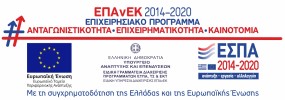The National and Kapodistrian University of Athens in collaboration with GET successfully completed the implementation of the electronic PULCHRA City Challenges Platform. The implementation took place in the framework of the Science in the City: Building Participatory Urban Learning Community Hubs through Research and Activation -PULCHRA program funded by the European Union.
The project is about developing an online environment for interaction and information, which will enhance synergies between different groups of stakeholders, such as schools, businesses, local governments, NGOs, etc. The design and development of the platform was based on the methodology developed in the context of PULCHRA project.
The PULCHRA City Challenges Platform supports an open network, which consists of schools and other stakeholders (universities and research centers, public and private sector bodies, central and local government bodies, NGOs, members of education etc.).
The participants of this network form work groups (Science Teams), which deal with specific assignments related to the urban environment. The way the working groups are created is as follows: the schools select the members of the working group from a repository of stakeholders that best suit the topic of the assignment they have chosen.
In the methodology, students are treated as “researchers” and interact with other groups, who support the implementation of the assignments chosen by each school. Local authorities, for example, can describe how issues of interest relate to the needs and priorities of the city, academic institutions can provide scientific guidance and data, and so on.
The development of the platform was based on the WordPress open source content management system, which is a powerful open source software for creating, managing and sharing content on the Internet and social media.
Different menus are available for presenting the content of the platform:
- Participant presentation menus (schools, teachers, other stakeholders, etc.) which lead to corresponding pages with more information for each participant
- Project presentation menus, which lead to corresponding pages with more information about the progress and results of the work.
- Project Partners Presentation menus
- Cartographic mapping of the schools participating in the project
For workgroups participating in the assignments, the following options are available:
- creating distinct – by participating school and by participating partner country – working groups (Science Teams and Science Reporters) among those registered on the platform
- posting material / information (text, image, map, diagram, video, presentation, etc.) by the members of the working group
- communication between the members of the working groups (Science Teams) but also between different assignments.
Finally, individual tools were developed to support the working groups, such as:
- Online courses (external links)
- Educational material
- Repository of material (e.g. scientific texts, reports, etc.)
- Visualization tools – Visualization tool, for which the data to be visualized are given in a standard format, e.g. measurement data from sensors
- Remote Sensing tool – which provides access to Copernicus program data
- Newsletters / Posts by work teams (Science teams and Science Reporters)





